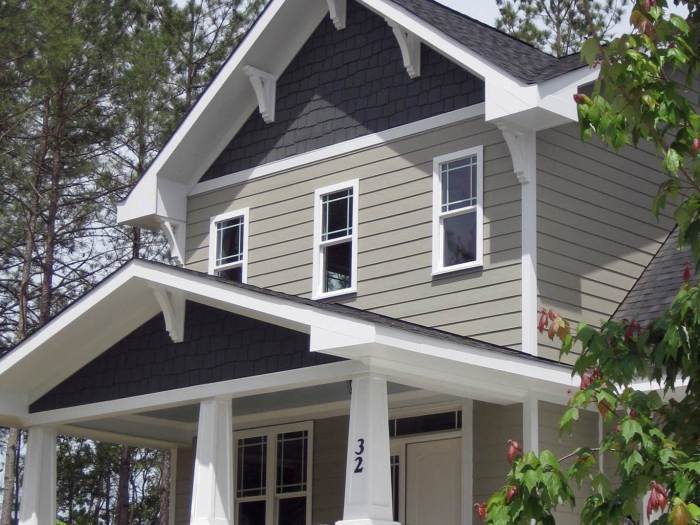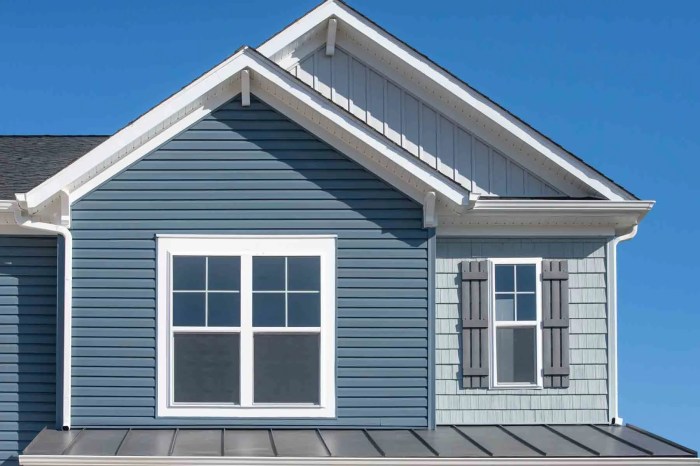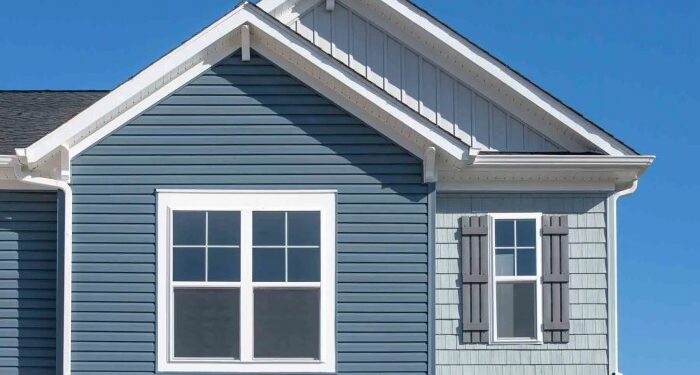Embark on a journey to discover the top-rated vinyl siding contractors in your area with our guide. From essential qualities to cost estimation, we cover it all to help you make an informed decision.
Researching Vinyl Siding Contractors
When looking for the best vinyl siding contractors in your area, it's important to consider a few key factors to ensure you hire a reliable and reputable professional for the job.
Key Factors to Consider
- Experience: Look for contractors with years of experience in installing vinyl siding to ensure they have the necessary skills and knowledge.
- Licensing and Insurance: Make sure the contractor is properly licensed and insured to protect yourself in case of any accidents or damages during the project.
- Reputation: Check online reviews and ask for references to get an idea of the contractor's reputation and quality of work.
Tips for Finding Reliable Contractors
- Ask for Recommendations: Seek recommendations from friends, family, or neighbors who have had vinyl siding installed recently.
- Get Multiple Quotes: Obtain quotes from several contractors to compare prices and services offered before making a decision.
- Interview Potential Contractors: Schedule meetings with potential contractors to discuss your project and gauge their professionalism and communication skills.
Importance of Reviews and References
Reading reviews and checking references before hiring a vinyl siding contractor can provide valuable insights into their past work and customer satisfaction. This information can help you make an informed decision and choose a contractor who meets your expectations.
When looking for the best vinyl siding contractors, there are certain qualities that set them apart from the competition. These qualities ensure that you get high-quality work and excellent customer service throughout the project.
Experience and Expertise
Having years of experience in the vinyl siding industry is crucial for top contractors. They have the knowledge and skills to handle any challenges that may arise during the installation process. Expertise allows them to provide efficient solutions and deliver exceptional results for your home.
- Experienced contractors can accurately assess your needs and recommend the best siding options for your home.
- They have a deep understanding of different siding materials, installation techniques, and industry best practices.
- Expert contractors can offer valuable advice on maintenance and care to ensure the longevity of your vinyl siding.
Certifications and Licenses
It is essential to choose contractors who hold the necessary certifications and licenses in the vinyl siding industry. These credentials indicate that they meet specific standards and regulations, ensuring the quality and safety of their work.
- Look for contractors who are certified by reputable organizations like the Vinyl Siding Institute (VSI) or the National Association of Home Builders (NAHB).
- Verify that the contractor has the required licenses and insurance to operate in your area.
- Certifications and licenses demonstrate a commitment to professionalism and adherence to industry standards.
Cost Estimation and Budgeting

When planning a vinyl siding project, it is crucial to have a clear understanding of the costs involved and to establish a realistic budget. Here, we will discuss how customers can obtain accurate cost estimates from vinyl siding contractors, the factors that influence the cost of vinyl siding installation, and strategies for budgeting and financing vinyl siding projects effectively.
Obtaining Accurate Cost Estimates
Before starting a vinyl siding project, it is recommended to contact multiple contractors to request cost estimates. Make sure to provide detailed information about the size of your home, the type of siding you prefer, any additional features or customization, and any specific requirements you may have.
This will help contractors provide accurate quotes based on your specific needs.
Factors Influencing Cost
- The size of the home: Larger homes will require more materials and labor, resulting in higher costs.
- The type of siding: Different types of vinyl siding come at varying price points, with premium options costing more than standard ones.
- Additional features: Trim work, insulation, and decorative elements can add to the overall cost of the project.
- Labor costs: Labor rates can vary depending on the contractor's experience, location, and workload.
Budgeting and Financing Strategies
When budgeting for a vinyl siding project, it is essential to consider the total cost, including materials, labor, permits, and any unforeseen expenses. Here are some strategies to help you budget effectively:
- Set a realistic budget: Determine how much you can afford to spend on the project and stick to that budget to avoid overspending.
- Get multiple quotes: Compare quotes from different contractors to find the best value for your money.
- Consider financing options: If you need assistance with financing, explore options such as loans, lines of credit, or financing plans offered by contractors.
- Plan for contingencies: Set aside a contingency fund to cover any unexpected costs that may arise during the project.
Materials and Installation Process

When it comes to vinyl siding, there are different materials available, each with its own set of pros and cons. Understanding these materials and the installation process followed by professional vinyl siding contractors is crucial in making an informed decision for your home.
Types of Vinyl Siding Materials
- Traditional Vinyl Siding: This is the most common type of vinyl siding, known for its affordability and wide range of color options. However, it may not be as durable as other materials.
- Insulated Vinyl Siding: This type of siding comes with an added layer of insulation, providing better energy efficiency for your home. It can help reduce energy costs but may come at a higher price.
- Premium Vinyl Siding: Premium vinyl siding is thicker and more durable than traditional vinyl siding. It offers better resistance to impacts and extreme weather conditions, but it can be more expensive.
Installation Process
Professional vinyl siding contractors follow a typical installation process that involves:
- Preparation: This includes removing the old siding, inspecting the walls for any damage, and preparing the surface for installation.
- Installation: The siding panels are then installed starting from the bottom and working their way up, ensuring a proper overlap to prevent water infiltration.
- Trimming and Finishing: The edges and corners are trimmed, and any necessary finishing touches are added to complete the installation.
Durability and Maintenance Requirements
- Traditional Vinyl Siding: While affordable, traditional vinyl siding may require regular cleaning and maintenance to prevent fading or warping over time.
- Insulated Vinyl Siding: Insulated vinyl siding offers better durability and energy efficiency, requiring less maintenance in the long run.
- Premium Vinyl Siding: Premium vinyl siding is the most durable option, with minimal maintenance requirements and excellent resistance to fading and damage.
Warranty and Customer Service

When choosing a vinyl siding contractor, it is crucial to consider the warranties offered and the level of customer service provided. These aspects can greatly impact your overall satisfaction with the project and the longevity of your siding.
Importance of Warranties
Warranties offered by vinyl siding contractors provide assurance that the materials and workmanship are of high quality. A strong warranty can protect you from unexpected issues that may arise after the installation is complete, giving you peace of mind and potentially saving you money in the long run.
- Warranties typically cover defects in materials and workmanship for a certain period of time, ensuring that any issues will be addressed promptly by the contractor.
- Extended warranties may also be available for an additional cost, providing even more comprehensive coverage for your siding.
Significance of Customer Service
Good customer service is essential when selecting a vinyl siding contractor, as it can make the entire process smoother and more enjoyable. A contractor who is responsive, communicative, and attentive to your needs can help ensure that your project is completed to your satisfaction.
- Responsive communication throughout the project can help address any concerns or questions you may have, leading to a more positive experience overall.
- A contractor who values customer service is more likely to prioritize your satisfaction and go above and beyond to ensure you are happy with the final result.
Handling Warranty Claims
Reputable vinyl siding contractors typically have clear processes in place for handling warranty claims. In the event that you need to make a warranty claim, the contractor will guide you through the necessary steps to address the issue promptly and effectively.
- Contractors may schedule an inspection to assess the problem and determine if it is covered under the warranty.
- If the issue is covered, the contractor will work to repair or replace the affected areas at no additional cost to you, ensuring that your siding remains in top condition.
Local Regulations and Permits
When it comes to installing vinyl siding, it is crucial to adhere to local regulations and obtain the necessary permits to ensure a safe and quality project. Failure to comply with these requirements can result in fines or even having to undo the work done.To make sure your chosen contractor follows all the necessary regulations and secures the required permits, here are some key points to consider:
Common Regulations and Permits
- Before starting any vinyl siding project, it is essential to check with your local building department to understand the specific regulations and permits needed in your area.
- Common requirements may include obtaining a permit for exterior renovations, ensuring compliance with zoning laws, and following specific installation guidelines.
- Make sure your contractor is aware of these regulations and has experience working within the legal framework to avoid any potential issues.
Ensuring Compliance with Building Codes
- Verify that your contractor is licensed and insured, as this can be an indication of their commitment to following building codes and regulations.
- Request information on past projects and references to ensure that the contractor has a track record of complying with local regulations.
- Regular inspections during the installation process can also help ensure that the work meets the required standards set by local authorities.
Role of Permits in Quality Assurance
- Permits serve as a way to guarantee that the vinyl siding installation is done according to the established safety standards and building codes.
- By obtaining the necessary permits, you can ensure that the project undergoes proper inspections to verify that the work is being done correctly.
- Having permits in place also protects you as a homeowner, as it demonstrates that the project is being carried out legally and up to code.
End of Discussion
In conclusion, choosing the best vinyl siding contractor near you involves considering various factors such as experience, cost, and customer service. With this guide, you are equipped to find the perfect fit for your vinyl siding project.
Question Bank
What are the key factors to consider when researching vinyl siding contractors?
Key factors include experience, reputation, and certifications.
How can customers obtain accurate cost estimates from vinyl siding contractors?
Customers can request quotes based on the size of the project and chosen materials.
Why is customer service important when selecting a vinyl siding contractor?
Good customer service ensures a smooth and satisfactory experience throughout the project.














